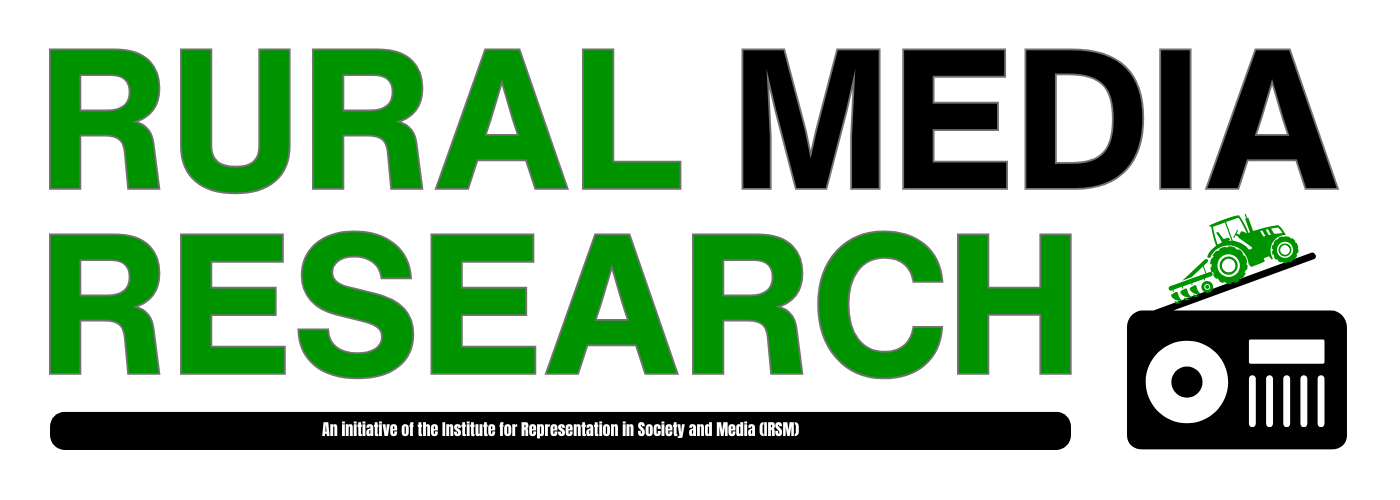Project Title
Plugging Into the Community: Uses and implications of digital tools for small-town, weekly news outlets
Research Purpose
The purpose of this study is to investigate how community media outlets use technology to produce and share news and information.
Project Participants
Project participants will be weekly newspaper publishers, editors, or reporters who work for small-town, community media outlets in Kansas. These individuals will be recruited via email from a list of Kansas Press Association (KPA) members that is publicly available on the KPA website (kspress.com). In the email recruitment letter, there will be a link to a Google Form where individuals can volunteer to be interviewed and complete a pre-interview questionnaire, which is the chosen data collection method of this project.
Potential Risk to Participants
There is no anticipated risk from participating, and it is not anticipated that any portion of the process will make an individual uncomfortable. However, should an individual feel any form of discomfort in any way, the individual can stop participating in the interview at any time.
Use of Deception
No deception will be involved.
Project Procedures
Informed consent will be obtained when they use the provided Google Form to volunteer to be interviewed. They will have to click “Agree” on the informed consent portion of the form before they can see any other part of the interview signup and pre-interview questionnaire.
Project participants will be interviewed. They will have the choice of in-person, phone call, or Zoom interview formats. Each interview will take 30-to-90 minutes, and they will be recorded. Primarily the audio will be recorded, but, in the event of a Zoom interview, video recording will be conducted as well.
The recordings will be used to develop transcripts of the interviews that can be coded and analyzed, but the raw recordings will not be made public, though the clips of the interviews (audio) may be used as part of the reporting for this study’s findings.
While being interviewed, observations will take place. Notes will be made of the surroundings in order to develop a clearer picture of who the person is and how the community media outlet functions. Such observations will be made in the case of Zoom and in-person interviews as possible, but they will not be made for phone interviews due to the nature of the audio-only medium.
The information collected through the interviews (including audio clips but not raw recordings) might be used for future research or other projects without additional informed consent. Following the interview, participants will be read a debrief statement.
Safeguarding Study Participants’ Identities
Anyone who is interviewed will be identified by an assigned alias, as well as their title, general organizational affiliation, and other demographic information as applicable. Though the interviews do collect individually identifiable information, they will not be personally identified by name or other means in the reporting of this research project. Instead, participants will be assigned an alias that will be used in conjunction with general information about who they are (e.g., “editor/reporter” but not “Moundridge Ledger editor/reporter”). Any demographic information or questionnaire responses will be used in the aggregate as a basis for comparison.
Additional Information
All data collected will be kept on a password-protected computer in a home office that has a door with a lock. This home office is located within the researcher’s personal home, which is also equipped with doors, locks, and security cameras.
No one will be paid for participating.
Interview Participation Signup
DOCUMENTS
Informed Consent
Debriefing Statement
Thank you for your participation in this study. The purpose of this study was to investigate how community media outlets use technology to produce and share news and information, especially in the face of mis- and disinformation.
Your participation is not only greatly appreciated by me, but the data collected will contribute to the broader body of knowledge in the communication research community, which can have downstream impacts on society as a whole.
The research employed interviews, during which you answered a series of questions during a 30-to-90-minute session or series of sessions. You had the opportunity and choice to answer each question. You were expected to answer questions you chose to address with openness and honesty, understanding that you could decline to answer any question presented to you during the interview itself. The interviews were recorded using video and/or audio recording devices. The recordings will be used to develop transcripts of the interviews that can be coded and analyzed, but the raw recordings will not be made public, though clips of the interviews (audio) may be used as part of the reporting for this study’s findings.
Additionally, the information collected through the interviews (including audio clips but not raw recordings) might be used for future research or other projects without additional informed consent.
The interviews did not involve deception. Also, though the interviews did collect individually identifiable information, you will not be personally identified by name or other means in the reporting of this research project. Instead, you will be assigned an alias that will be used in conjunction with general information about who you are (e.g., “editor/reporter” but not “Moundridge Ledger editor/reporter”). Any demographic information or survey question responses will be used in the aggregate as a basis for comparison.
You are free to withdraw from the study at any time.
If you have any questions about this study, please contact me: Todd R. Vogts, Ph.D., 620-245-4551, todd.vogts@gmail.com If you have any questions or concerns regarding your rights as a subject in this study, you may contact the Sterling College Institutional Review Board (IRB) Committee by reaching out to: Dr. Jennifer Dyson, Institutional Review Board Coordinator, Sterling College, 125 W. Cooper Ave., Sterling, Kansas, 67579, jdyson@sterling.edu, 620-278-4333.
